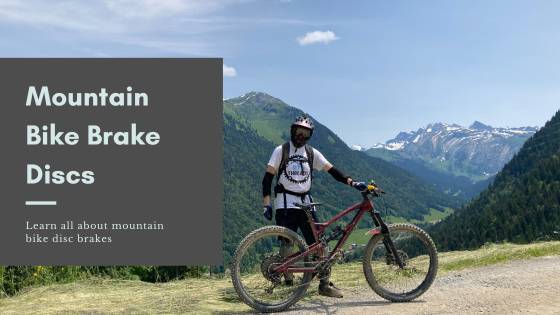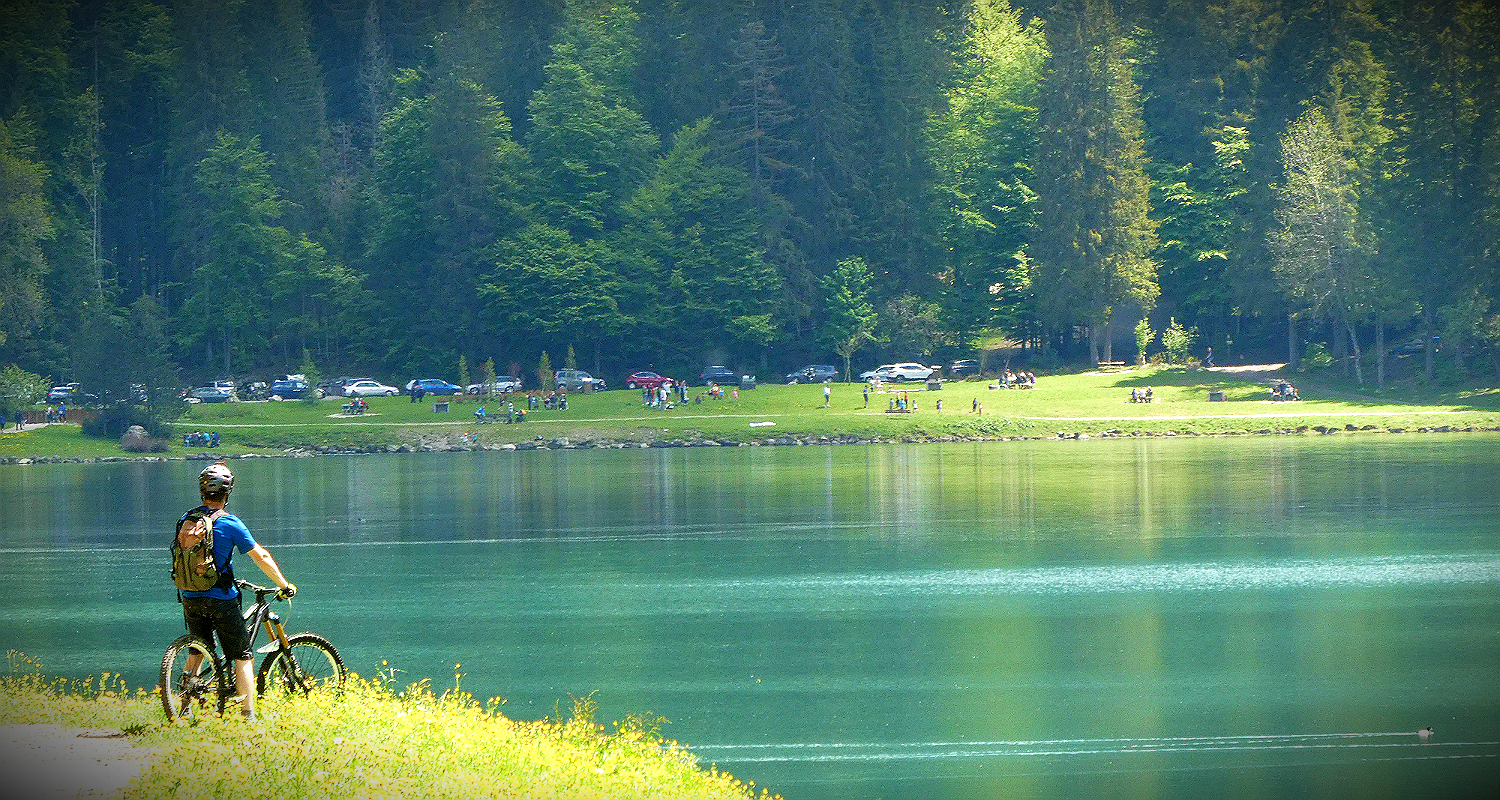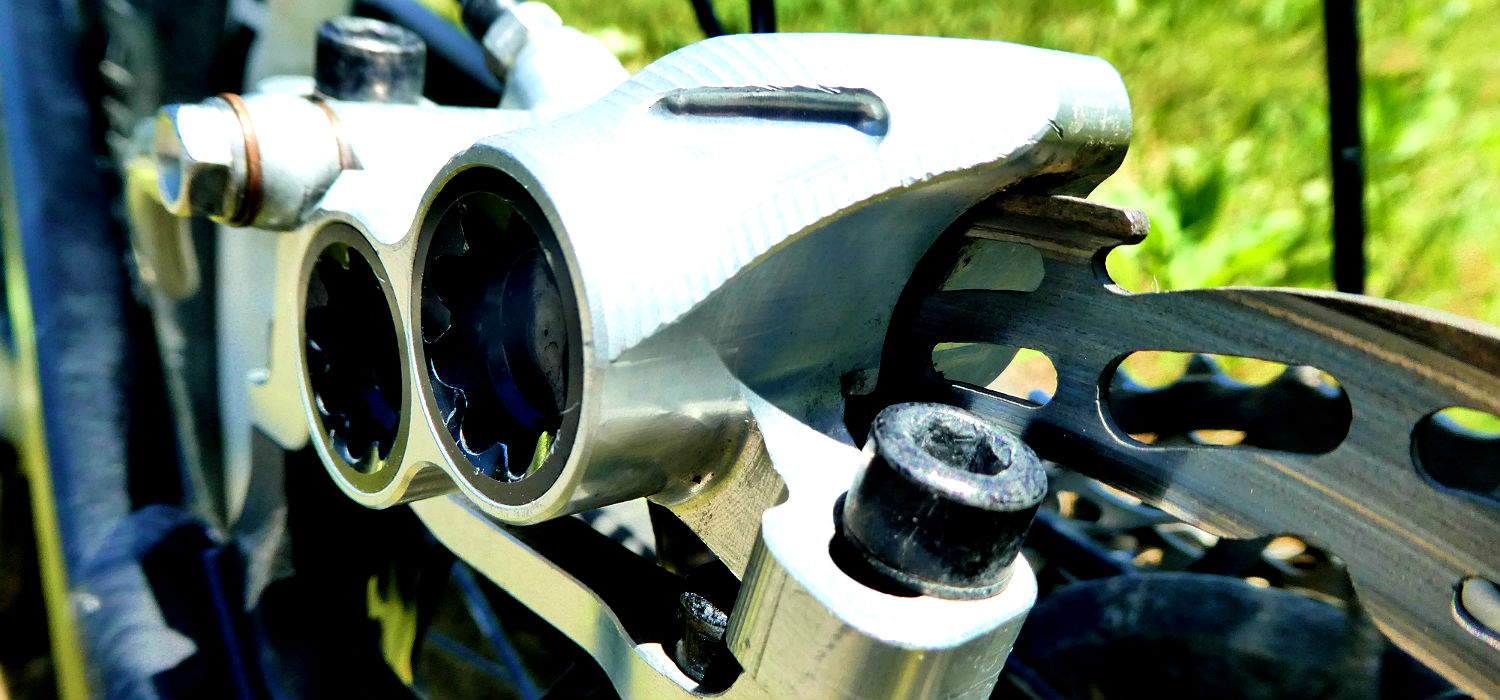Mountain Bike Disc Brakes: Ultimate Stopping Power!
Welcome, to the world of mountain bike disc brakes! When it comes to conquering rugged terrains and descending heart-pounding slopes, having reliable stopping power is a must. When you go from the old-fashioned rim brakes to modern mountain bike disc brakes, you will notice an incredible boost in braking performance. But there are a few things you need to know about them.
In this blog, I’ll dive into the captivating realm of mountain bike disc brakes, exploring the inner workings of both mechanical and hydraulic systems.
What Are Mountain Bike Disc Brakes?
Let’s start by understanding what they actually are. Picture this: instead of the traditional rim brakes that press brake pads against the wheel rim, disc brakes utilize a rotor attached to the wheel hub. When the brake lever is engaged, brake pads squeeze against the rotor, creating friction and slowing down the bike. It’s like having a mini-mechanism of stopping power right at your fingertips!
Mechanical vs. Hydraulic Mountain Bike Disc Brakes
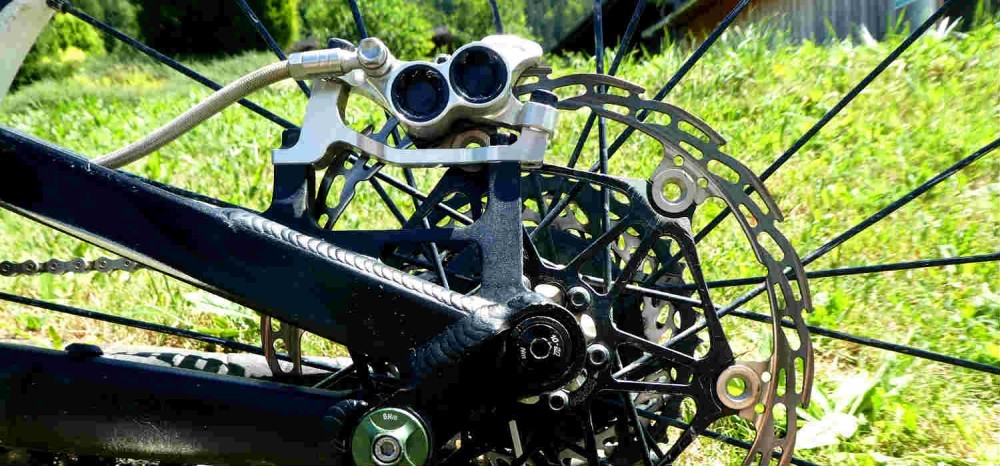
There are key differences between mechanical and hydraulic disc brakes. Mechanical disc brakes rely on a cable system to transmit force from the brake lever to the caliper, where brake pads are pressed against the rotor. On the other hand, hydraulic disc brakes utilize fluid-filled hoses to transfer force, providing a more precise and consistent braking performance, as you would see on a modern car.
While mechanical disc brakes have their merits, the hydraulic variant takes the cake in terms of sheer stopping power and modulation. Imagine having the ability to feather your brakes with supreme control, enabling you to navigate treacherous trails with finesse and confidence. So, when it comes to mountain biking, the answer is clear: hydraulic disc brakes are undoubtedly worth every pedal stroke!
The Advantages of Mountain Bike Disc Brakes
Unparalleled Stopping Power
Whether you’re tackling steep inclines, navigating technical sections, or hurtling down a mountainside, disc brakes provide exceptional stopping power. With larger rotors and better heat dissipation, you can bid farewell to the dreaded “brake fade” phenomenon, allowing for consistent and reliable braking in any terrain or weather condition.
Enhanced Modulation And Feel
Mountain bike disc brakes offer superior modulation, meaning you have precise control over how much braking force is applied. This modulation allows for feathering the brakes, enabling you to maintain traction and navigate tight turns with grace and agility.
Increased Durability
The rugged nature of mountain biking demands components that can withstand the punishment. Disc brakes are built to last, with robust construction and materials that can handle the relentless abuse of off-road adventures. So go ahead, take those jaw-dropping descents without worrying about brake performance.
Consistent Performance
One of the biggest advantages of disc brakes, especially hydraulic ones, is their consistent and predictable performance. Unlike rim brakes that can be affected by wet conditions or debris on the rim surface, disc brakes work independently of the wheel, offering reliable stopping power regardless of external factors. This reliability is a game-changer when you’re traversing challenging terrain or facing unpredictable weather conditions.
Wheel Flexibility
Another perk of disc brakes is the flexibility they offer in terms of wheel choice. With rim brakes, you’re limited to specific rims with braking surfaces. However, disc brakes eliminate this constraint, allowing you to choose from a wide range of wheel options. Whether you prefer lightweight carbon wheels for speed or durable alloy wheels for rugged trails, disc brakes can accommodate your wheel preferences without compromising braking performance.
Common Problems with Mountain Bike Disc Brakes
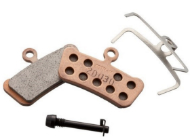
Mountain biking is tough on bike components, and even the most robust mountain bike disc brakes are not invincible. So, let’s address some common issues that mountain bikers may encounter with their disc brakes, along with their potential causes and solutions:
Squeaky Brakes
Ah, the dreaded high-pitched squeal that can disrupt the tranquility of a serene trail. The culprit? Contaminated brake pads or rotor. Give them a thorough cleaning with isopropyl alcohol, or consider replacing them if the contamination persists.
However, the squeak can be the result of a small piece of dirt trapped between the rotor and pad. This will become dislodged when you remove the pads to take a look.
Another potential cause of squeaky brakes is that your caliper may not be centered. To remedy this, loosen the caliper bolts until you can wiggle the caliper slightly. Then pull the brake lever to center the caliper over the rotor. While you’re holding the lever, re-tighten the bolts. This should align your pads nicely to stop the squeak.
The cause of the squeak may simply be down to worn pads. If this is the case, you’ll notice a significant lack of braking performance and horrible screaming noises. Check how much braking material is left on the pads and replace them if it is thin. I always carry a spare set of pads with me.
Soft Brake Lever Feel
If you find your brake lever sinking closer to the handlebar with minimal stopping power, there might be air in the brake system. Bleeding the brakes, which involves removing air bubbles from the hydraulic fluid, should restore that crisp lever feel you desire.
Bleeding mountain bike disc brakes can be easy, but some models are more tricky to service. If you’re not sure how to do this, take your bike to a bike shop, and the mechanic will be able to do the job in a few minutes.
Fading Brakes
Are your brakes feeling weaker after prolonged downhill descents? Excessive heat buildup might be the culprit. Consider upgrading to larger rotor sizes or switching to finned brake pads for improved heat dissipation.
Often brake fade comes from using them too much. It is a good idea to work on making your braking technique and line choice more efficient. This will mean you’re less reliant on your brakes while allowing you to ride faster.
However, don’t try to save your brakes when charging down the side of a mountain. They are fitted to your bike for a reason!
Brake Pad Wear
As you conquer trails, your brake pads will inevitably wear down. Regularly inspect and replace them when necessary. Try not to wait until they are screeching before you change them.
Final Thoughts On Mountain Bike Brake Pads
Mountain bike disc brakes have taken the cycling world by storm, revolutionizing how we ride and bringing many benefits to the table. From their increased stopping power and consistent performance to their all-weather reliability and heat dissipation capabilities, disc brakes truly unleash the full potential of mountain biking. So, if you’re seeking a thrilling and confidence-boosting ride, it’s safe to say that mountain bike disc brakes are more than worth it. Embrace the power, tackle those trails, and enjoy the exhilarating experience of stopping on a dime!

